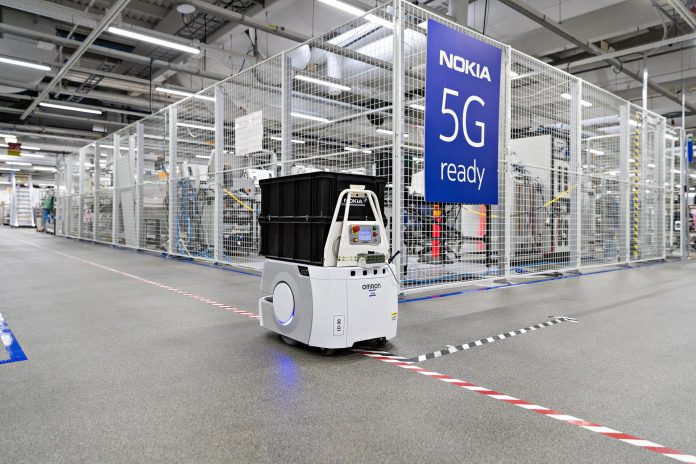Nokia has struck a deal with Indian operator Bharti Airtel to offer private LTE and industrial AI to enterprises in the manufacturing and distribution sector.
The pair said their partnership around private networking in India will also draw in customers in the financial services, information technology, and media and services industries. But India’s manufacturing and industrial sectors will be the main conduit for these technologies, they said, to drive new levels of automation and data exchange, and to improve operational efficiencies and costs.
They will develop digital-change services – leveraging IoT sensors, cloud and edge computing, and analytics-based artificial intelligence and machine learning, they said – to run in dedicated LTE networks on their premises (see promo video below). They will also explore the development of 5G use cases for the enterprises, they said.
The two companies have already set to work, with an Industry 4.0 deployment at Nokia’s telecoms equipment factory in Chennai, in India. The deployment focuses on digitization, predictive and prescriptive analytics, and robotics connected through “low latency and secure” LTE. The deployment is designed as a local showcase for local enterprises.
Analyst house ABI Research estimates private wireless networking will be worth around $16 billion by 2025. A new report by Mobile Experts predicts the market for private LTE and 5G will spiral to about $10 billion in 2025, at a rate of around 20 per cent compound growth per year. Both companies cite demand in the oil and gas, mining, utilities, transportation, government, and manufacturing industries.
Subscribe now to get the daily newsletter from RCR Wireless News
Bharti Airtel serves over 2,500 large businesses and over 500,000 small and medium sized enterprises (SMEs) and tech start-ups in India. In 2015, the Indian government launched a Digital India campaign to transform its own service provision; the programme has since wrapped in Industry 4.0 strategies to modernize and upgrade the country’s industrial productivity.
Ashish Arora, chief executive for enterprise businesses at Airtel, said: “Our ambition is to be a key enabler of digital transformation of businesses. With our future ready connectivity platforms and ecosystem of partners, we are uniquely positioned to serve this massive demand.”
Naresh Asija, head of the Bharti Airtel account at Nokia, said: “Telecoms providers play a key role in Digital India. We are delighted to partner with Airtel as the operator leads the way in driving the Fourth Industrial Revolution in India for enterprises.”
Nokia said last week it had signed “nearly” 40 new customers for private LTE networks in the three months to the end of 2019, growing its private LTE client base by around 50 per cent in the period. Nokia now has contracts for private LTE networks with 130 customers in total, it said.
Meanwhile, Nokia-rival Ericsson announced a tie-up this week with country-mate operator Telenor to resell its pre-packed private LTE and 5G to factories and warehouses. Transport company Scania, another Swedish firm, is already making use of the Ericsson bundle, dubbed Ericsson Industry Connect, at its smart production lab in the industrial city of Södertälje, southwest of Stockholm.

